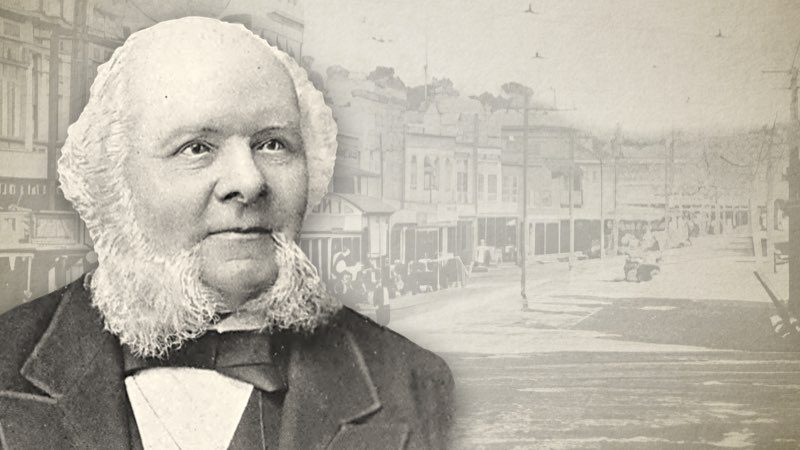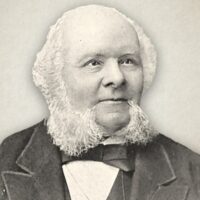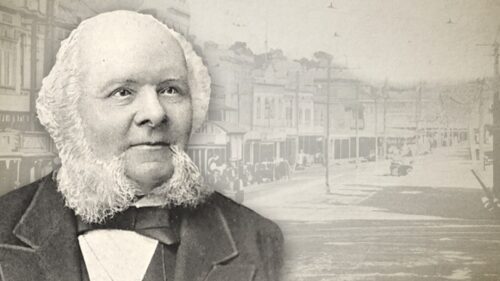
The Life And Ministry Of George Cowell
The Sower 1896:
The Late Mr. George Cowell
“Memorials Of A Gracious Life.” By His Daughter Ruth.
(A Review)
The “Wayside Notes” that for nearly fifty years appeared so regularly in the Gospel Magazine contained such sweet morsels for the household of faith, that spiritual readers looked forward with delight month by month for these Notes respecting the pilgrim’s way. But now the hand that wrote them is still, and the immortal spirit has entered into the higher service of praise.
The memorials of Mr. Cowell’s gracious life have recently been published in a very handsome-looking volume, and we are thankful that his daughter Ruth has gone gleaning amongst the sheaves, and has been enabled to present us with such sweet handfuls of purpose from the life and writings of this dear servant of the Lord; by this means we come to know more intimately the inner life, and the Lord’s gracious dealings with His servant.
The benevolent and happy-looking countenance which presents itself as we open the book, forms a beautiful frontispiece, and we feel that the expression of his face clearly revealed the inward peace and comfort which true religion had brought to his soul, and which he realized even to the end, as his last words abundantly show:—
“I am satisfied with Jesus as my Saviour, and I know He has saved me; I am satisfied with the religion I have professed; I am satisfied with all the Lord has done for me; I die satisfied with the Lord’s leadings and dealings, and can now say, “Come, Lord Jesus, O come and take me home.”
Mr. George Cowell was born at Camberwell, on November 13th, 1822. He lost his mother when only two-and-a-half years old, but she left him a rich legacy of prayers laid up before the Throne, abundantly answered in the after life of her dear child. An elder sister acted the mother’s part, and under her care and that of his godly father, the child grew up as a tender plant, manifesting even as a child a desire after spiritual things. He had three very narrow escapes from sudden death, which are very graphically related in the account of his life, and prove the truth of Ryland’s well-known lines—
“Plagues and deaths around me fly,
Till He bids, I cannot die;
Not a single shaft can hit
Till the God of love sees fit.”
After his school-days were “passed he was apprenticed to a firm in the neighbourhood of London, and while diligent in business, he utilized his spare hours in obtaining useful instruction for his mind, and in hearing various godly ministers, seeking a blessing upon his soul. He went frequently to hear the late Rev. J. J. West, Vicar of Winchelsea, when he preached in London. Referring to one occasion he writes:—
Never shall I forget his exclaiming in vehement language, “’Who shall lay anything to the charge of God’s elect?’ Who are they, Lord, ‘Those that cry day and night unto Me.'” I was in a hidden corner in the gallery, but could hardly help exclaiming audibly, “That’s me, that’s me. I am crying day and night unto God; He knows it. Can it be possible that this is a proof of my being one of the elect?” I wept that night like a child.”
Interesting accounts are given of his hearing Dr. Hewlett, of Astley; George Doudney, of Plymouth; A. B. Taylor, of Manchester; James Wells, of the Surrey Tabernacle; and Charles Haddon Spurgeon, at New Park Street Chapel. But Joseph Irons, of Camberwell, was to him the minister of all ministers, and his ministry was greatly blessed to his establishment in the truth.
“But that favoured spot, Grove Chapel, was really my spiritual birthplace. Yes, in No. 5 pew the Lord met and melted me, through the Word preached by dear Joseph Irons, from Solomon’s Song 6:11, “I went down into the garden of nuts to see the fruits of the valley, and to see whether the vine flourished and the pomegranates budded.” In that sermon, and under the expression “the pomegranates budded,” I became sensibly affected, and wept like a child. The dear man of God seemed to turn out my heart, and tell of all I had been realizing as a seeker after Jesus. On the following Sabbath evening Mr. Irons preached from “Babes in grace.” This broke me down altogether; joy and peace followed, and afterwards doubts and fears lest it was all a delusion. Thank God, it was no deception; and as I write these words, forty years after, I can say the God of my salvation has kept me and blessed me abundantly.”
A most interesting account is given of the close friendship that existed between Mr. George Cowell and Dr. Doudney for forty-nine years, undisturbed by any jarring note. Fellow-helpers in the work of the Gospel Magazine, each esteemed the other better than himself, and many testimonies did they have that their labours were owned of God. It seemed according to the right order of things that Mr. Cowell should succeed to the post of Editor, after the Lord had called His other servant home; but while we rejoice that Dr. Doudney retained this position for over half a century, we can but feel sorry that the Editorship of George Cowell was so brief; but His work was done, and the Lord had need of Him.
Mr. Cowell was a most acceptable minister of the Gospel, and some very interesting circumstances are recorded in respect to his ministrations in various places, and especially interesting is the account of his preaching at Grove Chapel, the spot rendered sacred to him by reason of the blessings enjoyed in days gone by:—
“After the morning service I went into No. 5 pew, and sat down upon the second seat, a little group having gathered around me. I said, “Now I sit on the spot where the Lord first revealed Himself to me as my Saviour; I must speak about it in the evening,” and so I did; and, under the words “He found me,” I recounted to a breathless congregation the precious fact, referring to the passage dear Joseph Irons preached from on that occasion, and then desired to glorify the God of my salvation with all the powers of my mind and soul. I am sure it was a memorable occasion.”
Very striking are the accounts given of the blessing that rested upon George Cowell’s writings, sometimes as tracts distributed broadcast, at other times through the Gospel Magazine.
Once when on a visit to a large Midland town to preach the Gospel, he received a visitor at the hotel where he was staying. The stranger introduced himself as a reader of the Gospel Magazine, and he told Mr. Cowell that, many years before, he was suffering from fearful temptations to take the life of a devoted daughter; but one morning, when the enemy’s power seemed the greatest, his eye caught eight of a Gospel Magazine lying on the table; he opened it and paused at the article of ”Wayside Notes,” “Kept”; he read on, “Kept by the mighty power of God.” That word “kept.” was sealed home by the Holy Spirit; he became melted down before the Lord; he was delivered from the temptation, and made to go on rejoicing in his Saviour.
The end of this dear servant of the Lord, brought on by an attack of paralysis, was the calm of the summer sunset; even the very clouds that hovered over the valley were illumined by the rays of the Sun of Righteousness.
“Let me lean on Thy strong arm, Lord Jesus. Be with me in the valley even unto the end. Lift up the blinds, dear, and let it be sunshine all the way. Lord, I have loved Thee so! Thou wilt not forsake me now. God bless you, my dear (to his daughter). May there be union and communion with me, my dear ones, and the Lord.”
A little before his end, he roused suddenly and said, “All is well,” and with upraised eyes, as though he desired to pray, he commenced, “O God,” and paused. “You will soon be beyond all need of prayer, you will see the Lord face to face; and you have loved Him so,” was said to him, to which he responded, “Yes, I have,” so joyously. The end, yea, I would rather say the beginning of life, came at a quarter to eleven that night, and then Victory.
The mortal remains of this dear servant of God were laid to rest in the Burton-on-Trent Cemetery, on the 21st of December, 1884. The resting-place had been but nineteen months before chosen as the resting-place of his beloved wife, and there together their bodies rest till the resurrection morn.
In this volume of 330 pages are given some choice letters, extracts from Mr. Cowell’s Diary, outlines of discourses, as well as the life history of which we have only given our readers a brief taste, but, we hope, sufficient to incline many of them to secure a copy. The price is five shillings, and copies can be had direct from Miss Ruth Cowell, 4, West Shrubbery, Redlands, Bristol, to whom our best thanks are due for the use of the beautiful portrait that accompanies this review; and we cannot close our remarks without expressing our approval at the excellent manner in which Miss Cowell has edited the book, and most heartily do we wish it a large sale.
George Cowell (1822-1884) was an Independent sovereign grace preacher and author. He also served a short time as editor of the Gospel Magazine.




